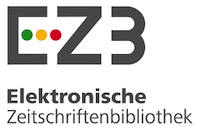World trends in the implementation of International Financial Reporting Standards. A bibliometric study of the period 1989-2018
Tendencias mundiales de la implementación de las Normas Internacionales de Información Financiera. Un estudio bibliométrico del período 1989 a 2018
##plugins.themes.bootstrap3.article.main##
The present paper aims at describing the main bibliographic characteristics of the world’s scientific production related to the implementation of International Financial Reporting Standards ―IFRS―. This is done from a descriptive analysis of the quantitative evolution of citations, international collaboration networks, productivity of the main authors and frequent terms in scientific publications.
A bibliometric study of scientific journals indexed in Scopus was conducted through the VOSviewer software which facilitates visualization of bibliometric maps. This allows to obtain a general vision of scientific research trends related to the implementation of IFRS. This is the first bibliometric study reporting on the main collaboration networks and thematic clusters of scientific production related to the implementation of these standards in organizations worldwide. The search strategy used identified 1224 scientific production documents allowing to visualize the importance of this study field in academic literature, 2018. Given the rigor of the methodology and the global approach of the study area, the results make it easier to effectively identify the direction of research on the
implementation on IFRS in organizations.
reflected in an increase of 99 % in the yearly number of publications between 1989 and
Downloads
##plugins.themes.bootstrap3.article.details##
Bar-Ilan, J. (2008). Informetrics at the beginning of the 21st century-A review. Journal of Informetrics, 2(1), 1-52. https://doi.org/10.1016/j.joi.2007.11.001
Bartels, E. (2013). How to perform a systematic search. https://doi.org/10.1016/j.berh.2013.02.001
https://doi.org/10.1016/j.berh.2013.02.001
Best Practice & Research: Clinical Rheumatology, 27(2), 295-306.
Belvert, N., Powers, M. and Crosson, S. (2009). Principles of accounting. Family Systems Medicine, 2(4), 363-364. https://doi.org/10.1037/h0091841
Buter, R.K. and van Raan, A.F.J. (2013). Identification and analysis of the highly cited knowledge base of sustainability science. Sustainability Science, 8(2), 253-267. https://doi.org/10.1007/s11625-012-0185-1
https://doi.org/10.1007/s11625-012-0185-1
Dyckman, T.R. and Zeff, S.A. (2006). Two Decades of the Journal of Accounting Research. Journal of Accounting Research, 22(1), 225-297. https://doi.org/10.2307/2490710
Falagas, M.E. et al. (2008). Comparison of PubMed, Scopus, Web of Science, and Google Scholar: strengths and weaknesses. The FASEB Journal, 22(2), 338-342. https://doi.org/10.1096/fj.07-9492LSF
Fuentes, D.D., García, H.A. y Toscano, A.E. (2018). Estado actual de la implementación de las Normas Internacionales de Información Financiera (NIIF) en PyMEs de la ciudad de Montería, Colombia. FACES, 24(51), 1-16.
Fusco, F. and Ricci, P. (2018). What is the stock of the situation? A bibliometric analysis on social and environmental accounting research in public sector. International Journal of Public Sector Management, 32(1), 21-41.https://doi.org/10.1108/IJPSM-05-2017-0134
Hulle, J., Kaspar, R. and Moller, K. (2011). Multiple Criteria Decision-Making in Management Accounting and Control-State of the Art and Research Perspectives https://doi.org/10.1002/mcda.482
Based on a Bibliometric Study. Journal of Multi- Criteria Decision Analysis, 18(5-6), 253-265.
Mattessich, R. (2012). Academic Research in Accounting: The Last 50 Years. Asia-Pacific Journal of Accounting, 3(1), 3-81. https://doi.org/10.1080/10293574.1996.10510486
Merigó, J.M. and Yang, J.-B. (2017). Accounting Research: A Bibliometric Analysis. Australian Accounting Review, 27(1), 71-100. https://doi.org/10.1111/auar.12109
Moher, D. et al. (2009). Preferred reporting items for systematic reviews and meta-analyses: The PRISMA statement. PLoS Medicine, 6(7), e1000097.https://doi.org/10.1371/journal.pmed.1000097
Nightingale, J.M. and Marshall, G. (2013). Reprint of "Citation analysis as a measure of article quality, journal influence and individual researcher performance." https://doi.org/10.1016/j.nepr.2013.02.005
Nurse Education in Practice, 13(5), 429-436.
Özmen, Ö. (2009). Business Ethics Research with an Accounting Focus: A Bibliometric Analysis from 1988 to 2007. Journal of Business Ethics, 93(1), 137-160. https://doi.org/10.1007/s10551-009-0187-9
Perianes-Rodriguez, A., Waltman, L. and van Eck, N.J. (2016). Constructing bibliometric networks: A comparison between full and fractional counting. Journal of Informetrics, 10(4), 1178-1195. https://doi.org/10.1016/j.joi.2016.10.006
Pipere, A., Veisson, M. and Salite, I. (2015). Developing Research in Teacher Education for Sustainability: UN DESD via the Journal of Teacher Education for https://doi.org/10.1515/jtes-2015-0009
Sustainability. Journal of Teacher Education for Sustainability, 17(2), 5-43. https://doi.org/10.1515/jtes-2015-0009
https://doi.org/10.1515/jtes-2015-0009
Rudzani, S. and Manda, D.C. (2016). An assessment of the challenges of adopting and implementing IFRS for SMEs in South Africa. Problems and Perspectives https://doi.org/10.21511/ppm.14(2-1).2016.10
Santos, G. (2012). Aproximaciones a un análisis bibliométrico de la Revista Internacional Legis de Contabilidad & Auditoría 2000-2012. Revista Internacional
Legis de Contabilidad & Auditoria, 50, 183-226.
Schaltegger, S., Gibassier, D. and Zvesdov, D. (2013). Environmental management accounting: a bibliometric literature review. Meditari Accountancy Research, 21(1), 4-31. https://doi.org/10.1108/MEDAR-12-2012-0039
https://doi.org/10.1108/MEDAR-12-2012-0039
Toscano-Hernández, A., Álvarez-González, L.I. y Sanzo- Pérez, M.J. (2018). Tendencias globales de la investigación científica relacionada con la sostenibilidad en la universidad: un análisis bibliométrico 2008-2017. En Álvarez-Arregui, E. et al. (Ed.), Universidad, investigación y conocimiento: comprensión e intervención en una sociedad compleja (pp. 237-244). Oviedo, España: Universidad de Oviedo.
Toscano, A. et al. (2018). Contabilidad ambiental y sostenibilidad en las organizaciones: redes de colaboración y clúster temáticos de la producción científica mundial. En Canabal, J.D. et al., Innovar, estrategia de sostenibilidad para el crecimiento y desarrollo empresarial (pp. 62-78). Montería, Colombia: Universidad del Sinú.
Tranfield, D., Denyer, D. and Smart, P. (2003). Towards a methodology for developing evidence-informed management knowledge by means of systematic https://doi.org/10.1111/1467-8551.00375
review. British Journal of Management, 14(3), 207- 222.
Unegbu, A.O. (2014). Theories of Accounting: Evolution & Developments, Income-Determination and Diversities in Use. Research Journal of Finance and Accounting, 5(19), 1-16.
Van Eck, N. and Waltman, L. (2010). Software survey: VOSviewer, a computer program for bibliometric mapping. Scientometrics, 84(2), 523-538. https://doi.org/10.1007/s11192-009-0146-3
Yamaguchi, C.K., Silva dos Santos, A.P. and Watanabe, M. (2015). Environmental accounting: A bibliometric study. Espacios, 36(11), 8.
Zyznarska-Dworczak, B. (2018). The Development Perspectives of Sustainable Management Accounting in Central and Eastern European Countries.
https://doi.org/10.3390/su10051445 Sustainability, 10(5), 1-21.


































